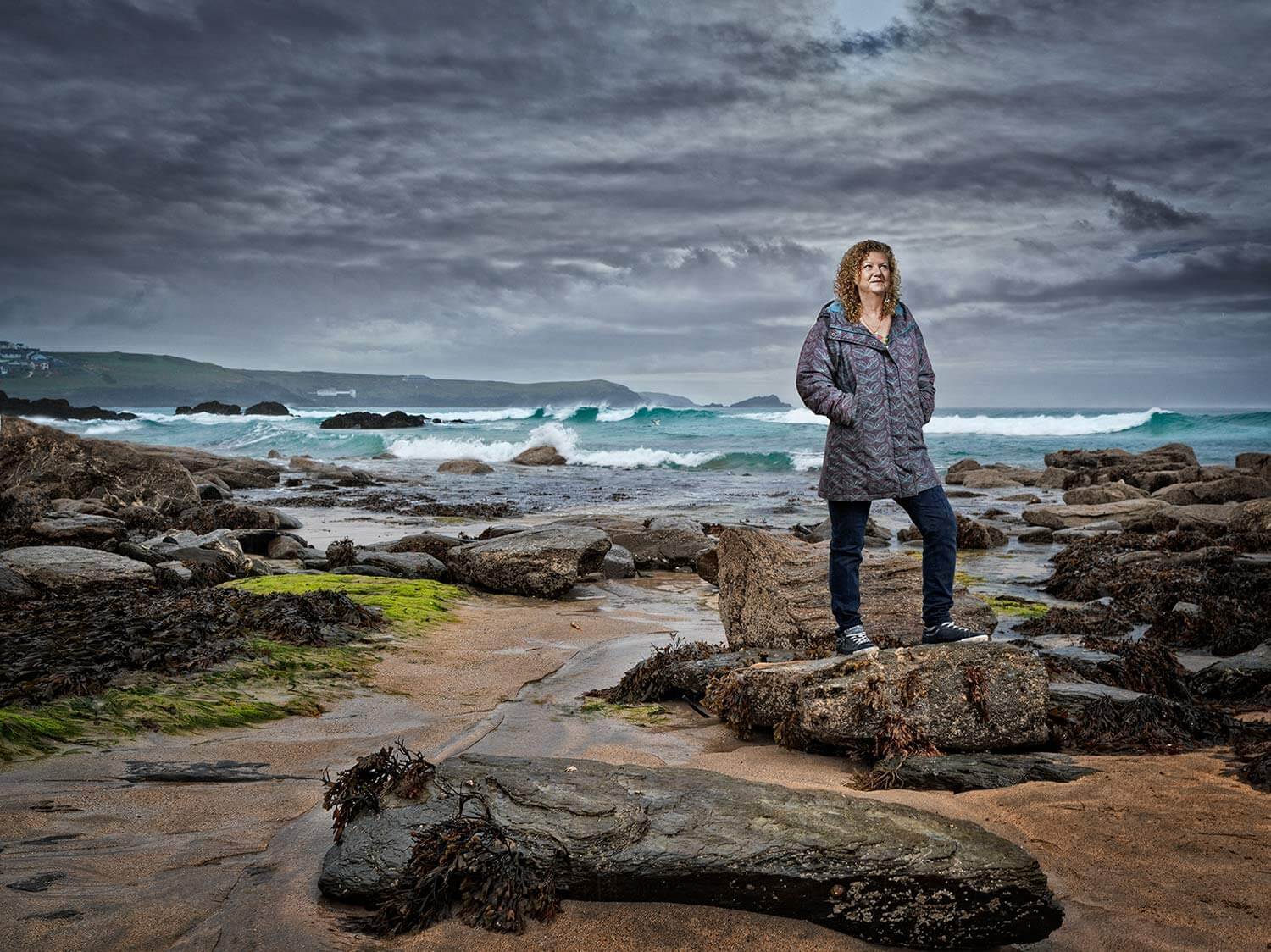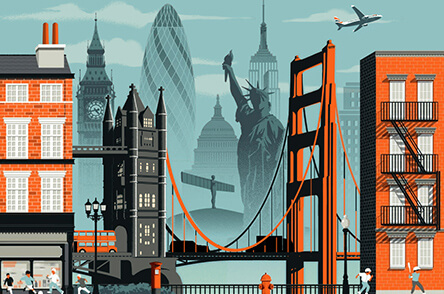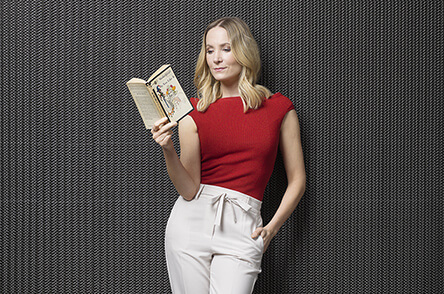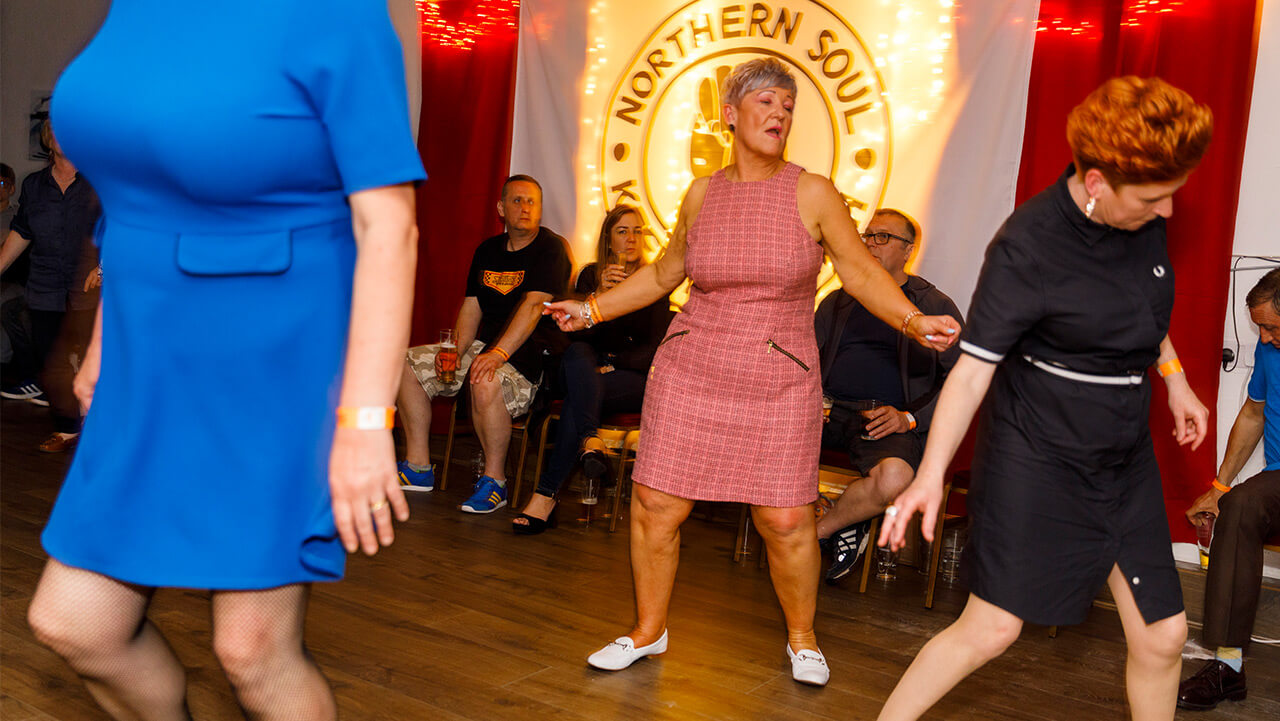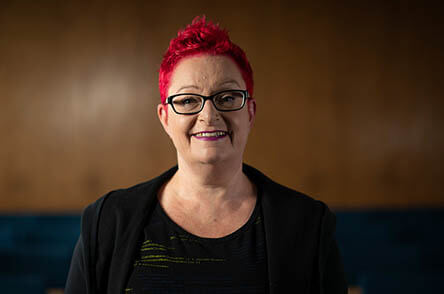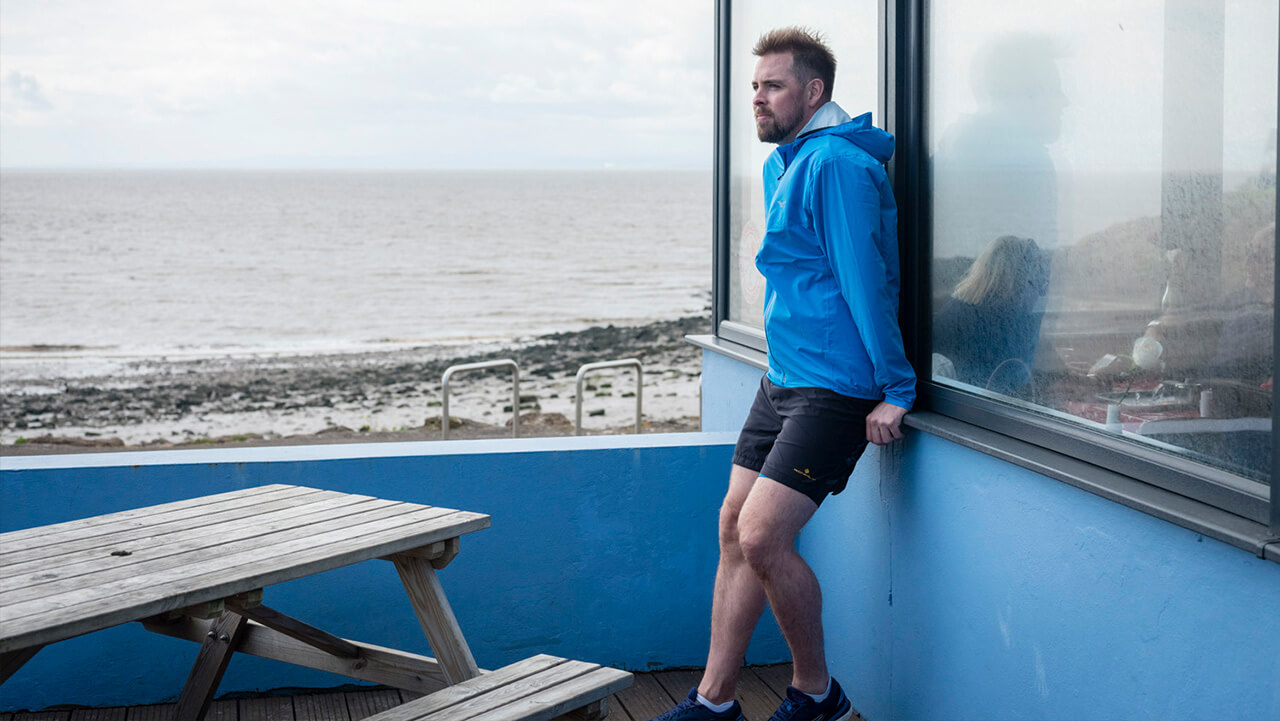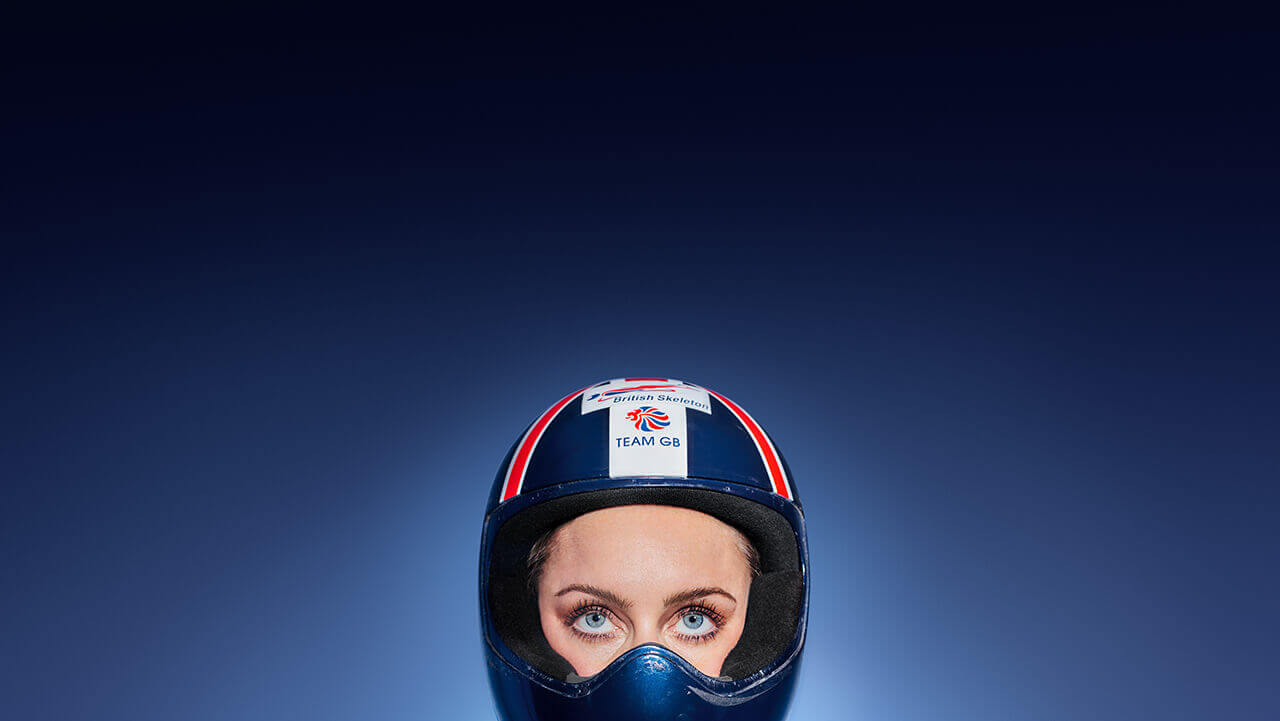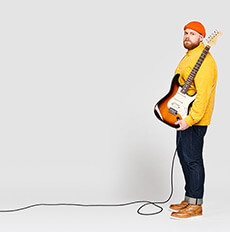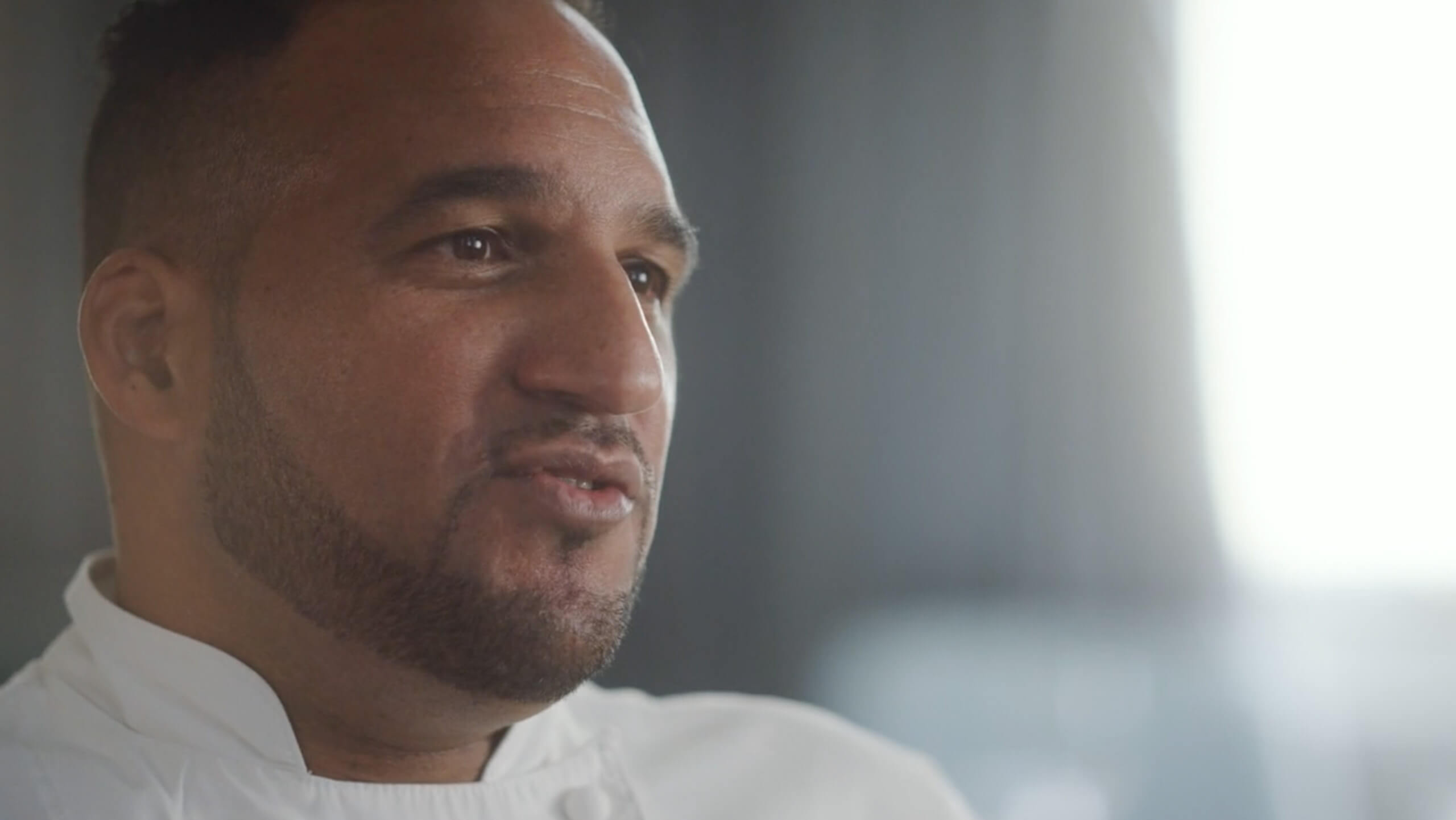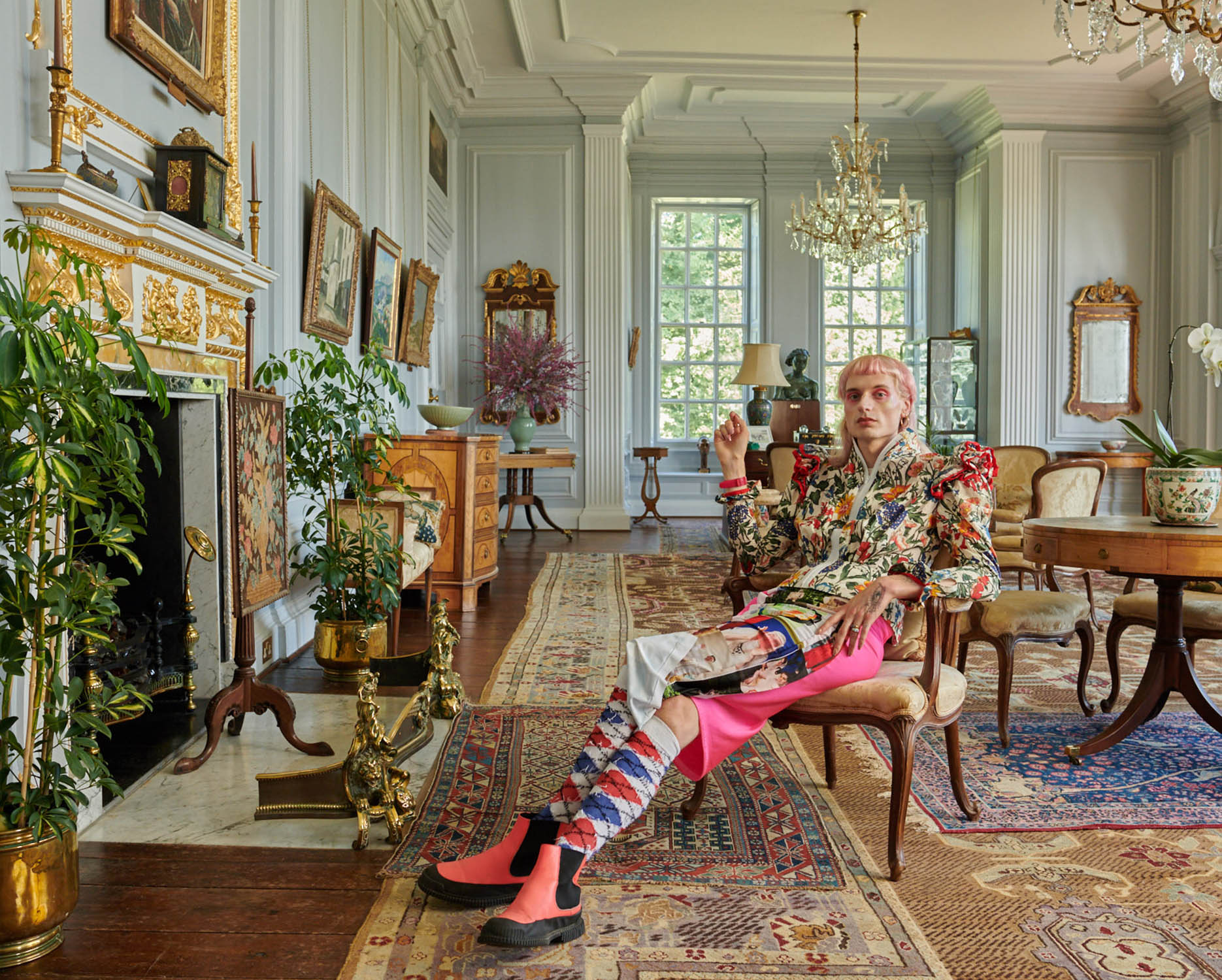Is there a person alive who doesn’t know about the dangers of plastic dumped in our seas? Film maker Jo Ruxton’s work is a wake-up call that has catapulted her onto the BA 100 list of Modern Britons
If you get the chance to sit down and talk with Jo Ruxton, be prepared for the way you think to shift a little. Or a lot, depending on your starting point. You won’t be alone. Over the past few years, this extraordinary Englishwoman has inspired global change.
Ruxton is the environmentalist who produced A Plastic Ocean, the impassioned, pull-no-punches feature documentary about plastic pollution which so moved veteran British wildlife broadcaster Sir David Attenborough that he described it as “one of the most important films of all time.” In fact, it was after seeing the rushes of the film that Attenborough made the plastics sequence in Blue Planet 2, with far-reaching consequences: is there a person alive who doesn’t know about the dangers inherent in even a simple plastic water bottle?
But Ruxton, 63, is still tirelessly raising funds, inspiring change and campaigning for a better world, all in a spirit of genuine hope – the sense that it is everyone’s fight, not just hers.
This never-give-up determination has earned her the accolade of being selected by British Airways to represent Environmentalism in BA’s list of 100 Modern Britons. The airline is marking its centenary by celebrating 100 remarkable people making waves in their chosen field.
TELLING THE TRUTH
Ruxton’s journey as an environmental filmmaker began with a moment of clarity when she was working on an underwater shoot for the BBC’s Natural History Unit, for the landmark series Blue Planet.
“We were off the Spanish coast, trying to film pilot whales, and our legs were getting tangled in huge sheets of polythene floating in the water, blown there from the polytunnels used for growing vegetables. That crystallized something for me: I felt that we should be telling the real story. We saw plastic everywhere we went. Why not give people the truth? Because if we keep on showing just the beautiful oceans, how will people know?”
Ruxton lobbied for more conservation issues to be included in the natural history unit’s work, but was overruled. In 2008, she took voluntary redundancy and set up her own business managing dive crews for film projects around the world. At the same time, she began plans to make an environmental film of her own: ‘A Plastic Ocean.’
When she heard there was a plan afoot to send decommissioned fishing boats to clear the Great Pacific Garbage Patch – a legendary miles-wide ‘island’ of waterborne plastic waste – she decided she had found her subject and would make a film about it.
“I’d seen reports that it was twice the size of Texas and 10 meters deep. I thought I was going to film a sort of human Wall-E story, but what I found was much worse.”
FOOD CHAIN
Instead of chunks of floating garbage that could be physically carried away, the plastics had broken up over time into tiny, sometimes microscopic, pieces to form a kind of poisonous aquatic smog. This was – and still is – getting into the plankton, and from there into the food chain. It is no longer a question of simply clearing litter from the sea.
Ruxton also began to learn about the science: how toxic chemicals dumped at sea hitchhike on plastic, then migrate into the fatty bits of fish that eat them, and from there into us. The story, she realised, was not just about the ocean.
She began fundraising and researching in earnest, and two years later was ready for the first shoot – a sequence with blue whales in Sri Lanka. She contacted a friend, environmental journalist Craig Leeson, and asked him to direct the sequences that took place above water.
The film took eight years to complete, and spanned 20 countries. It was a labor of love, and securing funding was a stop-start, ongoing job. Film crews and dive teams needed paying, boats hiring, sponsors wooing. Ruxton made every penny count, often working unpaid and at one point renting out her own home just to keep money flowing into the film.
World champion freediver Tanya Streeter became one of the main characters and Hollywood producer Adam Leipzig came on board to lead the final, crucial stage of production. The film was released in 2017 and has been shown in more than 60 countries, inspiring miles of newsprint and the creation of plastic oceans charities worldwide, as well as further campaigns and documentaries.
Jo Ruxton’s love letter to Britain
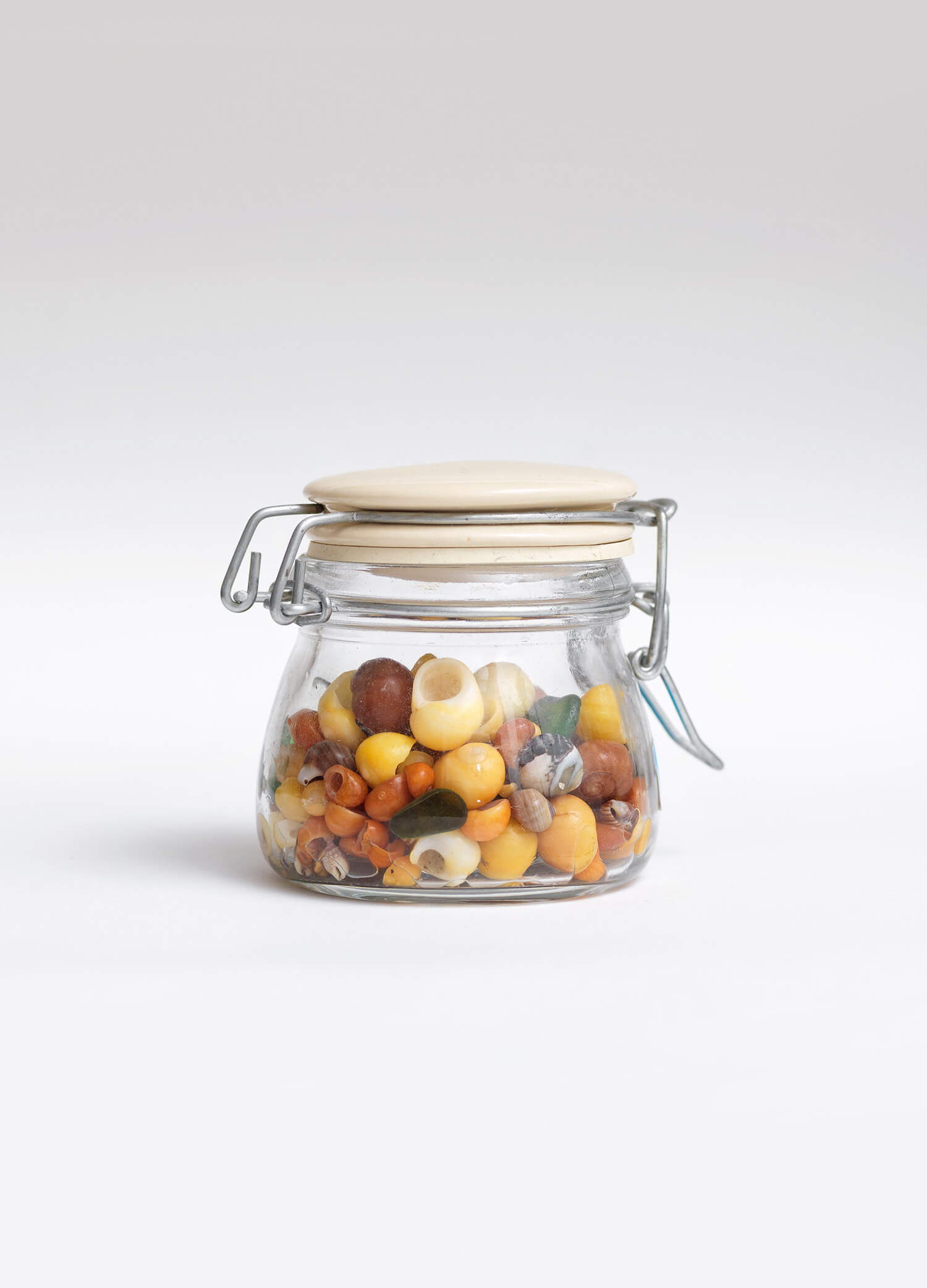 “There is no doubt that my connection with the ocean was made in Britain.
“There is no doubt that my connection with the ocean was made in Britain.
The happiest memories of my early childhood were spent in your rockpools on a Cornish beach, staring in fascination at the tiny creatures living there and collecting colorful periwinkles and sea glass. I still have and treasure a small collection of them from the early 1960s.
You opened my eyes to the sense of serenity the ocean brings, how walking along your shores and breathing in the sea air can replenish the spirit. I haven’t been your most loyal subject; I lived overseas for almost 20 years on five other islands. But this is the one place that gives me my true sense of belonging.
You have always welcomed me home.”
STEWARDING THE OCEANS
But Ruxton is not resting on her laurels. Instead, she has made campaigning and fundraising for her charity Plastic Oceans UK her full-time job. Taking care of our oceans is second nature to her: like many a child of this seafaring nation, something about them has got into her blood. Born in Yorkshire and brought up all over the world with a father in the RAF, islands are a recurring theme in her life: Cyprus, Malta, Singapore – even the Isle of Wight. Whenever her family returned to Britain they would holiday in Cornwall, walking its cliffs and beaches.
After studying biological sciences at university in London, she worked in a pathology lab, married and moved to another island: Hong Kong. There she raised two daughters, indulged a passion for diving – taking part in regular underwater plastics clean-ups – and worked for the World Wildlife Fund in marine conservation.
But the island of Britain was always her special love and, when her marriage broke up in 1997, she returned here. She had heard that the BBC was working on a new wildlife documentary about the oceans, so she applied and began working in the broadcaster’s Natural History Unit as a researcher on a new series: Blue Planet.
Twenty years later, A Plastic Ocean was released. Crucially, the film’s message is not just about the problem but also about the technologies, sciences and clever solutions that could help us get out of this mess.
“I was adamant that there were no villains in this, because we’ve all done it,” she says. “We all grew up believing that plastic was disposable, so I didn’t think it was fair to point the finger at any one person or corporation. And the others then sit back and think, ‘OK, well, it wasn’t me.’ But it’s all of us. And all of us can change.
Why not give people the truth? Because if we keep on showing just the beautiful oceans, how will people know?
“So many people don’t know the damage plastic is doing and how it threatens the health of our children. This is something we can change very easily – so why would we let it happen?”
“We’ve got a lot of solutions now, a lot of ideas, and new ones are being thought up all the time. We just need the infrastructure to make those solutions work.”
Recycling is one of these but, she adds, it has severe limitations and poor messaging means people are often unsure about what to put in which bin.
“Most importantly, we need to stop using plastic for single-use items. Plastic was designed to defy nature. It is designed to last forever, so why would we use it for things we’re going to throw away? And where is ‘away’?”
The small team at Plastic Oceans UK is tackling the issue on three fronts: education, sustainability, and policy change backed by solid science.
The science is key. “Everything needs to be rigorously backed up or it can easily be shot down,” Ruxton says.
As well as funding research, the charity is raising awareness and working on educating the next generation. It provides teaching resources that carry the message through the national curriculum, not just in science and geography but also in subjects as diverse as creative writing, where a task might be set to imagine how a plastic toy soldier found its way into the stomach of a seabird on a tropical island in the mid Pacific.
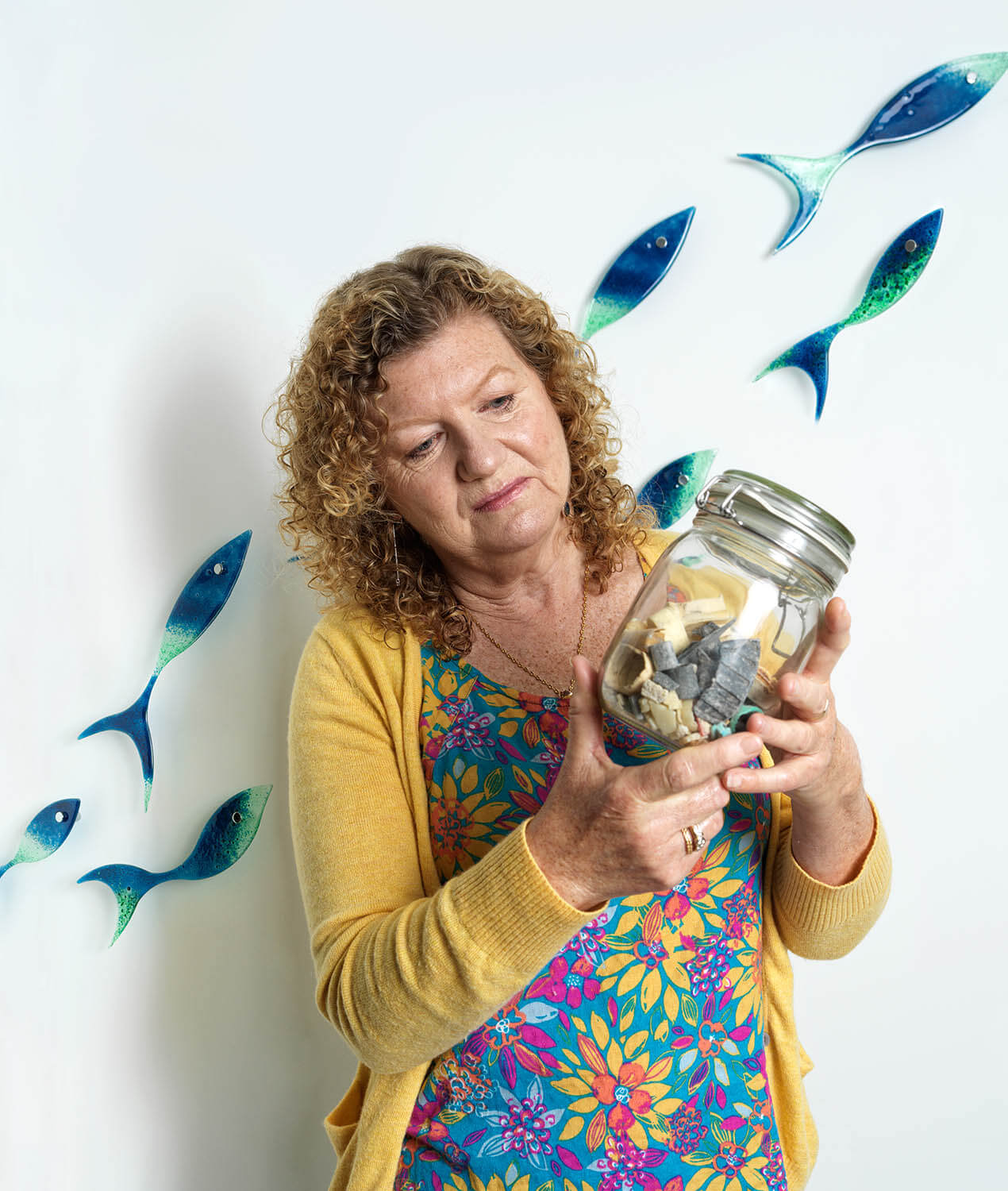
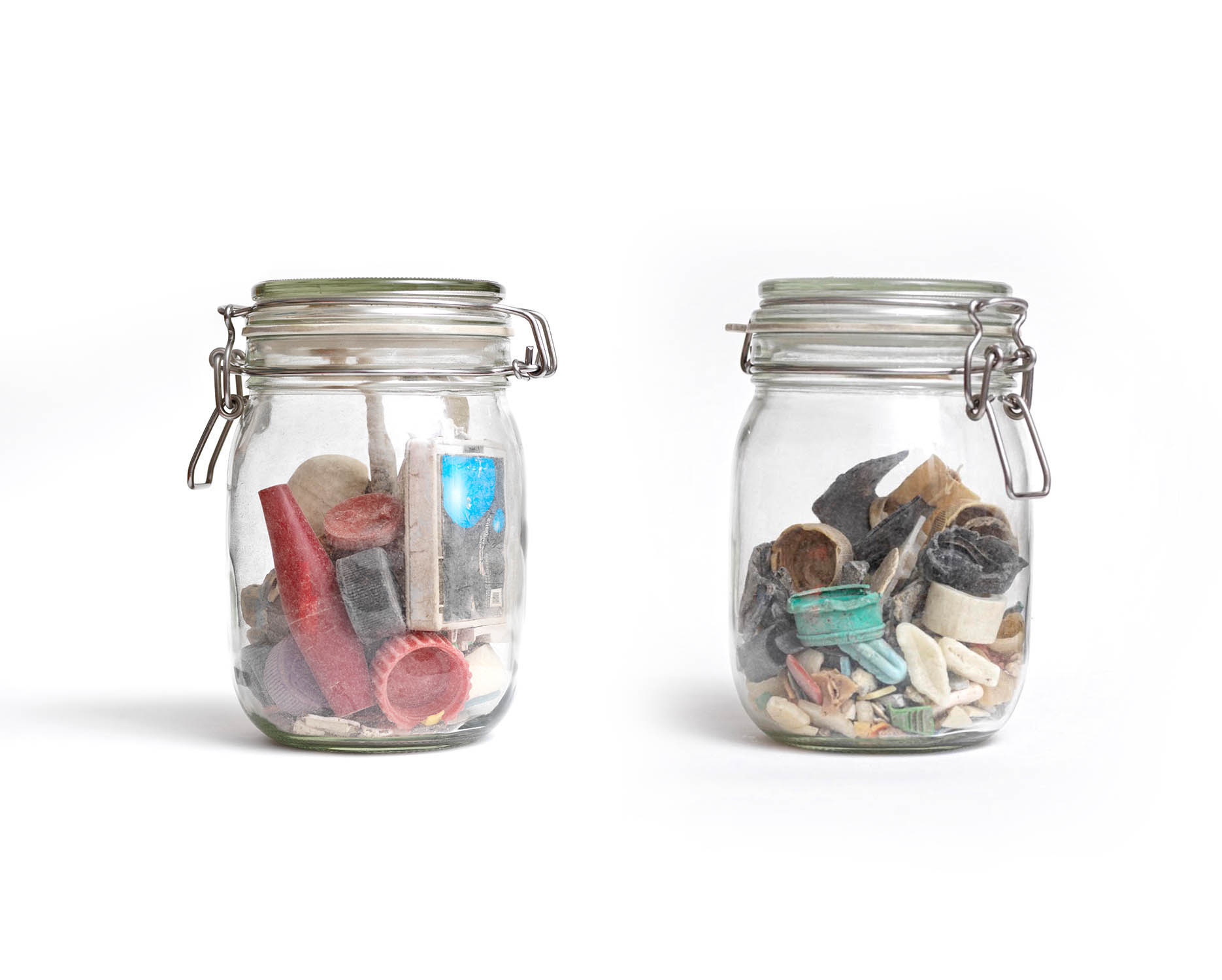
THROUGH A CHILD’S EYES
Ruxton tells an anecdote that speaks of the potential of our youth and offers hope for the future. After she took part in an assembly at a primary school in Shropshire, the catering manager explained to her that they couldn’t stop selling plastic bottles of water because the school made a much-needed £10,000 a year from them.
She later learned that not one child had bought bottled water since that day.
“Children get it. But I’ve also had adults come up to me after a talk and say that it has changed their life. And I do believe we will change things, because of the sheer number of these reactions I’ve seen.”
Meeting someone with Ruxton’s eco credentials, you might think you would feel awkward or a bit guilty – after all, we all use plastic every day. But like the film, Ruxton is anything but judgmental. Rather, she is infectiously optimistic.
So many people don’t know the damage plastic is doing and how it threatens the health of our children. This is something we can change.
She is also keen to point out that she is not anti-plastic: “It’s amazing stuff. It’s cheap and light, and you can do so much with it.”
In her talks, she shows photos of two tiny premature babies hooked up to life support systems: her granddaughters. You can see various items of medical single-use plastic, each part of the essential equipment.
“They wouldn’t be in my life now if it weren’t for plastic. It can be wonderful stuff – but not for things like disposable lighters and this ridiculous packaging.”
Ruxton keeps treasures she has scavenged from the beach in glass jars. One contains periwinkles and pretty sea glass. Another is filled with plastic pieces taken from the stomach of a dead albatross: lighters, bottle tops, various misshapen lumps, that toy soldier – even a printer cartridge. It was this plastic that killed the bird. Often, she says, showing this jar is what makes the biggest impact.
Ruxton lives in Cornwall now, the fulfilment of a long-held dream, where she regularly roams the beaches with her daughters and four granddaughters, who live nearby. The week after we meet there she is off campaigning again, this time to Cape Cod, to deliver a series of talks and screenings to yacht clubs, schools and communities.
“We never stop,” she says. And indeed, you sense she never will, not until her message has been heard.
To discover more members of the British Airways 100 Modern Britons, visit ba.com/100
For more information or to donate, go to plastic.oceans.uk
British Airways Innovates
As part of its 100 Modern Britons campaign, British Airways partnered with The Wall Street Journal’s The Future of Everything Festival in New York City, May 2019.
The annual festival convenes leaders, innovators and change-makers, asking ‘What happens next?’ and ‘What breakthroughs really matter?’ Both questions are critical for British Airways in its ongoing mission for innovative solutions.
Bringing together brilliant minds and rising talent to explore Culture, Health & Humanity, Technology, Style and Money, the Future of Everything Festival 2019 delivered world-changing ideas and high-level insights that only the Journal can provide.
In its 100-year history British Airways has produced a number of firsts, from the first commercial supersonic flight to the first business-class flatbed and the world’s first automated landing.
British Airways is using its centenary as an opportunity to look to the future. At the festival, audiences had a taste of innovation in air travel and some of the exciting new solutions to which British Airways customers can look forward. These include eco-friendly emission-free tugs, biometric boarding technology, industry-leading WiFi on long-haul flights, and sustainable-fuel partnerships.



